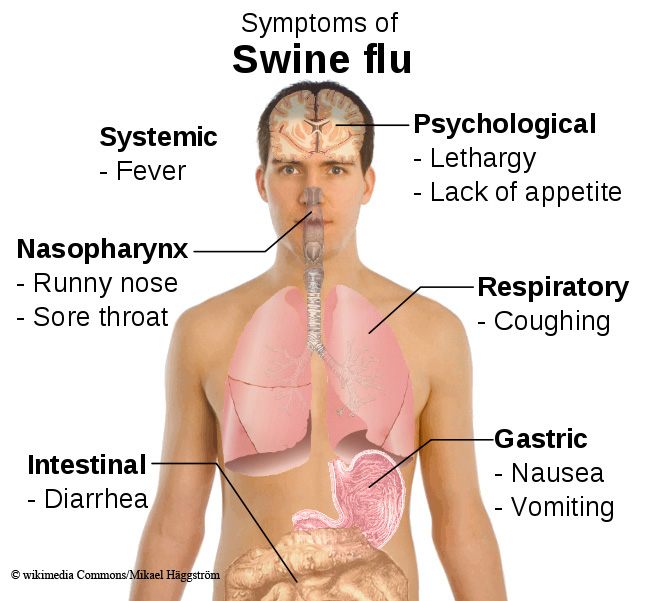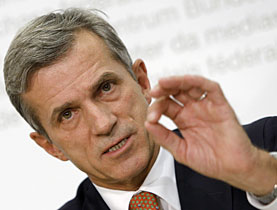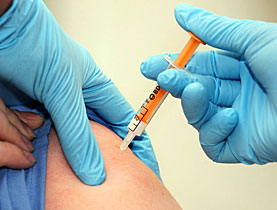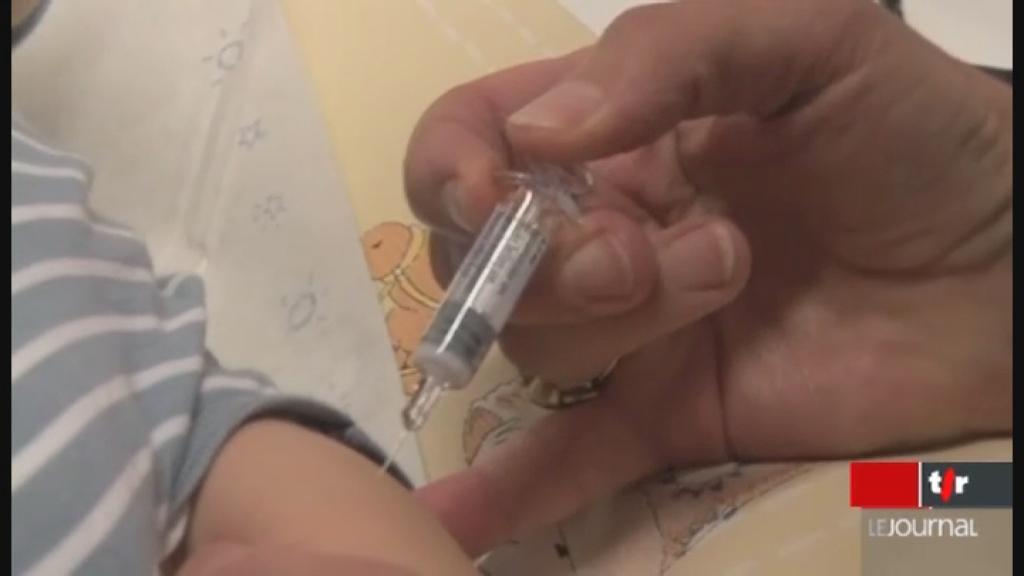Low vaccination rate “could spark big flu wave”

Switzerland could face a major wave of new swine flu cases owing to reluctance to get a preventative jab and delays over vaccine supplies, warns a flu expert.
The number of people with swine flu is rising fast: the Federal Health Office warned on Thursday that the number of cases of the H1N1 influenza had tripled over the space of one week to 4,500. But only 27 per cent of the general public are expected to get vaccinated.
The Federal Health Office warned on Thursday that the number of cases of the H1N1 influenza had tripled over the space of one week to 4,500.
“It could become a big wave, with more people with complications and more hospitalised,” Werner Wunderli, a virologist at Zurich University, told swissinfo.ch, “There is not enough immunity among the general population to break down transmission.”
“If we don’t get enough people vaccinated on time, we won’t be able to influence this wave,” added the former head of the national influenza centre in Geneva.
Meanwhile on Thursday, the Health Office reported the country’s third swine flu fatality. After the death of a five-month-old baby and a diabetic woman, a 46-year-old woman who was HIV positive has died.
Don’t see the benefit
According to a health office survey at the end of June, only 27 per cent of respondents were prepared to get vaccinated against swine flu. A recent poll in the SonntagsBlick newspaper showed an even greater reluctance: only 9.8 per cent said they would have the preventative jab.
The Swiss have a general wariness towards vaccines, demonstrated graphically with measles. The WHO believes Europe could wipe out measles in 2010 if 95 per cent of the population were vaccinated – in Switzerland however the rate is estimated at 86 per cent on average, falling in some German-speaking cantons to 70-75 per cent.
Last year Switzerland experienced its worst measles epidemic since mandatory reporting of the disease in 1999 and another epidemic in March threatened to compromise the fight against the highly contagious disease in other European countries.
Wunderli said German-speaking regions generally had a bad impression of vaccination programmes.
“People don’t see the benefit,” he said. “They think they’re in good health and don’t need them but they don’t get the point that they might affect older people and those at risk.”
The virologist added he was particularly concerned by Swiss medical staff’s general wariness of protecting themselves against viruses.
Safe vaccine
Arguments against getting a swine flu jab have generally been based on fears over vaccines’ safety or side-effects, or belief that the virus is too mild to bother about.
On Thursday WHO reaffirmed that the pandemic vaccine is as safe as the seasonal flu vaccine used for more than 60 years.
WHO ruled out swine flu vaccine as the cause of death in 41 people who had received the flu shot in six countries. It also voiced concern that some pregnant women and others at risk were shunning it because of a fear of side-effects.
Side-effects commonly reported include swelling and redness or pain at the injection site, although some had fever or headache, and all symptoms usually disappear after 48 hours.
Delays
This week the Swiss authorities have also been deflecting criticism of their immunisation programme.
There have been complaints from cantonal health authorities over limited vaccine stocks and question marks over whether Switzerland could have been faster – the vaccination campaign started four weeks after the outbreak of swine flu in Switzerland.
The health office argues Switzerland is one of the most well supplied countries for vaccines, compared internationally. By the end of this week two million vaccine doses should be available to cover the needs of one quarter of the Swiss population and this should rise to 50 per cent by the end of next week.
The authorities hope to have soon vaccinated most at-risk groups, include the chronically ill, pregnant women, children with previous health problems, and medical staff. And three-quarters of cantons should start vaccinating the rest of the population from November 23.
But criticisms have focused on logistics issues and the three months it took the Swiss Agency for Therapeutic Products (Swissmedic) to give the green light for the first two vaccines.
Didier Burkhalter, the new health minister, admitted on Swiss national television that there had been problems “here and there” and Switzerland had to draw lessons.
He said Switzerland has a complex system with “many pilots” and hoped to find a simpler, more direct way of coordinating and communicating over such health issues in the future.
Simon Bradley, swissinfo.ch
This swine flu variation, termed H1N1, is an influenza A virus spread from person to person.
It contains DNA from avian, swine and human viruses. Although swine flu viruses normally infect only pigs, they do sometimes cross the species barrier to cause disease in humans, according to the WHO.
It is passed from human to human by sneezing, coughing or by hand contact. The WHO says swine flu is not transmitted to people eating properly handled and prepared pork or other products derived from pigs.
New flu strains can spread fast because no-one has natural immunity and a vaccine can take months to develop.


In compliance with the JTI standards
More: SWI swissinfo.ch certified by the Journalism Trust Initiative












You can find an overview of ongoing debates with our journalists here . Please join us!
If you want to start a conversation about a topic raised in this article or want to report factual errors, email us at english@swissinfo.ch.